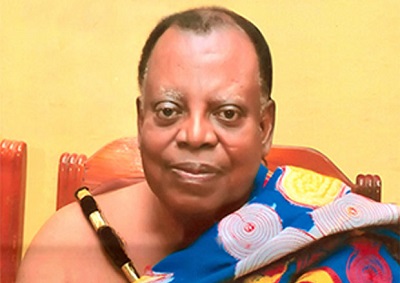
Members of Parliament should not live under the erroneous impression that the constitution actually prohibits the introduction of bills by private Members of Parliament, Nana Dr S.K.B Asante, a constitutional expert has said.
He said Article 108 of the 1992 Constitution did not impose an omnibus prohibition on the initiation of all legislation by a private member, since any MP was perfectly entitled to introduce any legislation which did not have the specific financial implications spelt out in the article.
Nana Dr Asante said this at the Speaker of Parliament stakeholder conference on promotion of Private Member Bill (PMB) at Parliament House last Thursday.
A PMB in Parliament would mean a departure from the old formulation was to the effect that the initiation and subsequent introduction of legislation in Parliament was the preserve of the Executive.
Article 108 made it clear that no bill introduced in Parliament should be at any cost to the government, and that interpretation of such a cost depended on him and caprices of the Speaker.
The matter was further nipped in the bud by the late former Speaker Peter Ala Adjetey, who ruled that the PMB could not be entertained during his tenure, since any bill which entailed the minutest expenditure, such as the cost of sheet of paper, went against the dictates of Article 108.
However, Nana Dr Asante in an argument said the bill by its current interpretation limits the power of Parliament as an institution to initiate its own financial legislation broadly classified as financial bills.
He said, for example, the legislation proposing the abolition of certain obnoxious or specially harmful customary practices did not involve taxation, or a charge or imposition on the Consolidated Fund or other public fund, or a payment, issue or withdrawal from such fund or a composition or remission of any debt due to the government as Article 108 stipulated.
Nana Dr Asante said the article conferred a discretionary power on the person presiding over the particular parliamentary proceedings to determine whether the bill fell within the purview of Article 108.
“This would mean that such a wide and exclusionary interpretation would be the subjective determination of the speaker,” he said.
He said if no MP other than a Minister could initiate legislation, then this meant that Parliament had virtually ceded a substantial part of legislative power of Parliament to the Executive in derogation from Article 93(2).
Prof. Aaron Mike Quay, Speaker of Parliament, said the current view was that the PMB should be allowed, provided that the bill would not affect the institution of chieftaincy, was not retroactive nor was it a bill for purpose of settlement of financial matters.
He said the enactment of PMB was critical to enhance democratic governance, adding that, it could serve as means by which Parliament might use the law as a tool for social engineering.
Prof Quay said the PMB would need the support of all, adding that before it passage there was the need to build a stronger consensus from within Parliament, and also effect the cooperation between the Executive and the Legislature.
By Lawrence Markwei







